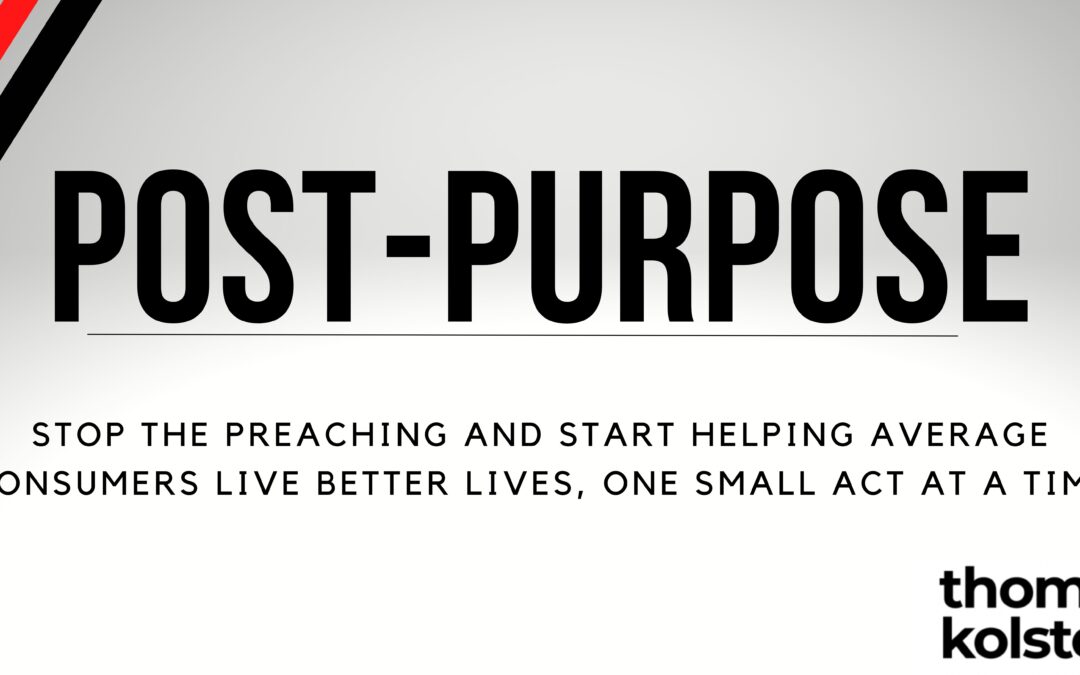People are turning their back on preachy, too-good-to-be-true purpose statements from brands. From years of anti-smoking campaigns, we have learned that people don’t avoid the cigarettes, but rather the campaign. The same can be said about so-called purposeful brands’ attempts to do shouty signal policy; it’ll fall on value-deaf ears. There are simply too many “Saints” in the supermarket aisles, so the big question is: Who to trust?
The brands that carved out a niche on activism are themselves being challenged by faster and more agile competitors, making their activism their biggest Achilles’ heel. Sustainability issues such as climate or diversity are fast evolving, and brands can quickly be caught up. And yes, you can argue, the conscious market is expanding, but they’re as fickle as a trendsetter, and when a brand talks about net positive, the conscious are already talking about regenerative. If you don’t know those terms, you can’t really call yourself a climate trendsetter…Sorry!
Swedish food maker Oatly might have opened up the market for plant-based milks with provocative, yet humorous slogans like “made for humans” but as plant-based milks are going from niche into mainstream, they seem to be losing the traction. Oatly’s do-good-talk and down-to-earth marketing stand in dire contrast to suing competitors and taking investments from Trump-backing Blackstone. Or what about another purpose darling—or maybe rather dinosaur—Bodyshop? Does it come across as conscious compared to Lush or challenger brands like The Handmade Soap Company? When you throw the first stone as a value-driven or activist brand, you will be exposed as living in a glass house. Brand activism, like the big idealistic political movements of our time such as communism, will eventually fizzle out and demonstrate what we all know: we humans are flawed, and so are brands.
The stone-throwing will come back at you like a boomerang. So how bout changing perspective? What brands with success can do in an increasingly post-purpose market is to embrace the average American looking for simple solutions to live greener, save a buck, or to shut-up their teenager’s constant vegan rant. People are no longer buying what you do or why you do it (values have become a commodity), but instead who you can help them become: A caring dad teaching his son to stop buying bottled water and instead go for the push of the SodaStream button. An informed mother helping her daughter understand financial literacy one penny in the piggy bank at a time. Very few of us wake up in the morning with an ambition to save the world, we wake up to go take a pee and then we (sometimes) actively push the small flush button.
If your brand is a true activist, maybe it’s about time to stop pointing fingers like a chosen Patagonia-wearing self-righteous tribe, and instead create an inclusive movement truly enabling all Americans, all inhabitants of blue planet Earth to take part in the change. For me, inclusivity is a cornerstone of sustainability Or else, I’m afraid “that’s all folks” for your business—and our collective future.

